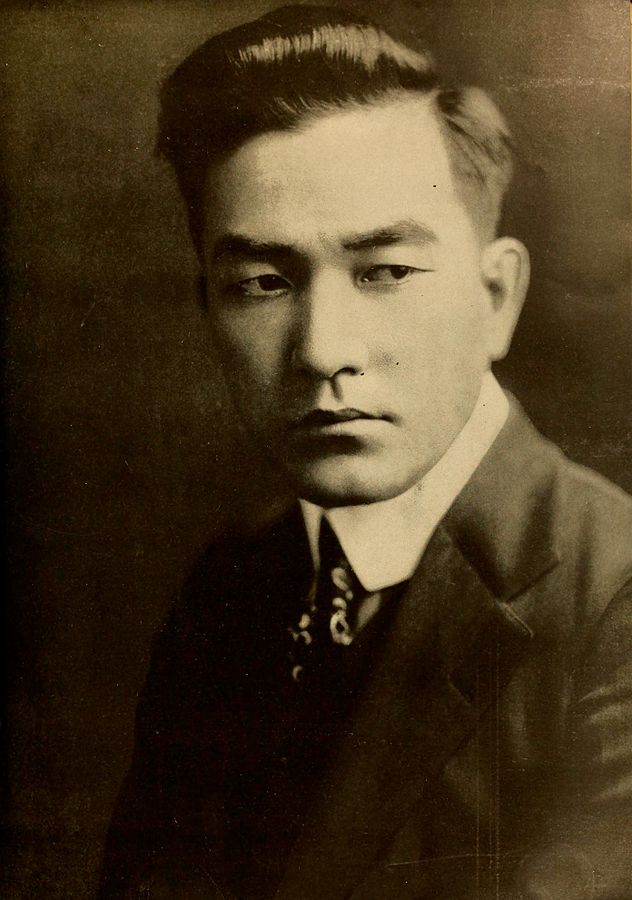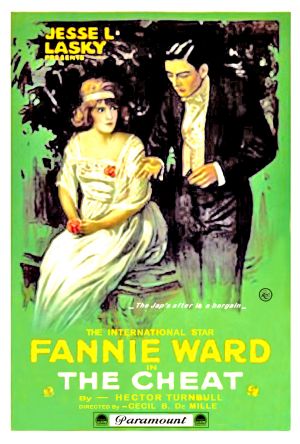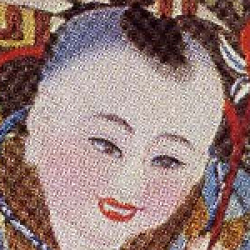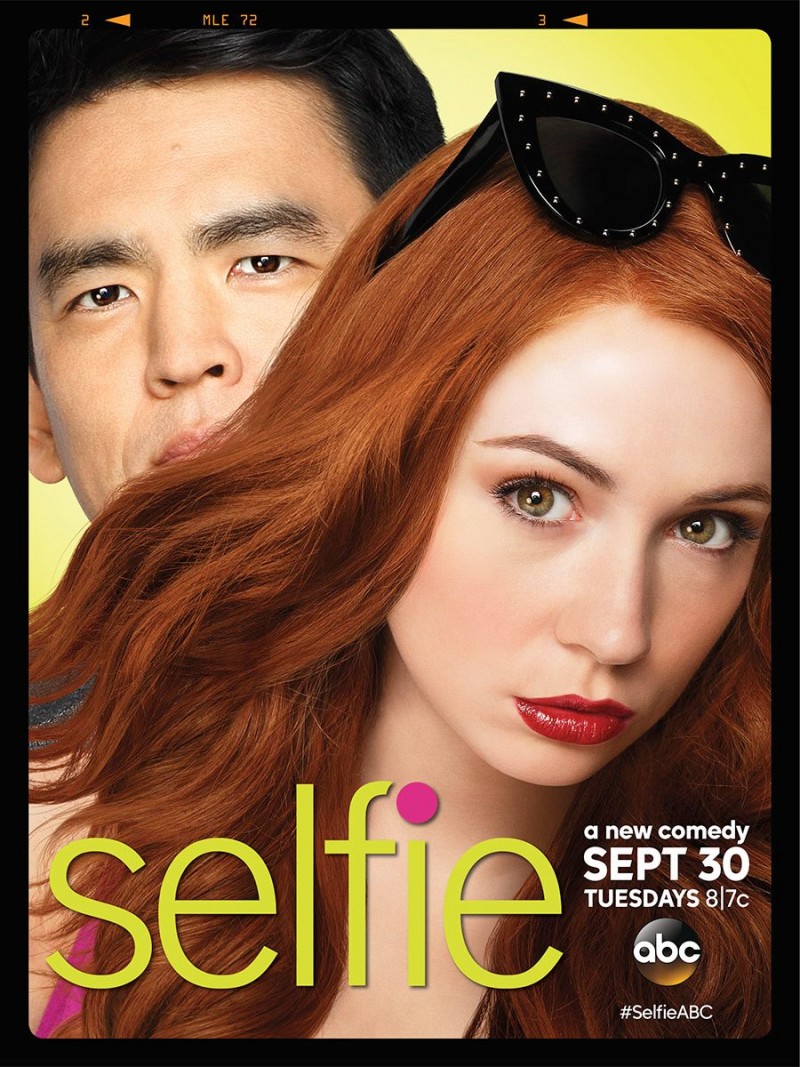Logan Lo enlightened me with this guest post, which speaks to an oft-forgotten side of Hollywood history and how it has impacted Asian men in the media today. He writes: “…there are some that feel that the modern effeminization of Asian men in Hollywood and television was due – at least in some part – to the backlash over the first Hollywood sex symbol, a Japanese man named: Sessue Hayakawa.”
Who was Sessue Hayakawa? Read on to learn more about this fascinating and pioneering actor. (UPDATE: For more background on this topic, read Logan Lo’s post titled Asian-ish.)
Logan Lo — who wrote the books A Great Online Dating Profile and A Great First Date — has also authored another terrific guest post for Speaking of China titled “Why limit yourself? Logan Lo shares his interracial dating story.”
Want to follow in his footsteps and get your writing published here? Learn how by visiting the submit a post page.
—–

Jocelyn recently wrote 5 Reasons You Should Watch The New AMWF Comedy “Selfie” so I thought it would be a good a segue into into Asians in mass media, which was actually my thesis in college.
But for the purposes of this blog entry, let’s talk about just Asian men in Hollywood and television.
There’s always been a peculiar mindset about us in Western cinema. For years, there were two contradictory caricatures: the diabolical and animalistic Fu Manchu trope on end, and the intelligent and effeminate Charlie Chan trope on the other.
Both played, for years, by white actors.
The former can be traced back to the Mongol hordes and the Huns that were the boogymen of Europe for centuries but there are some that feel that the modern effeminization of Asian men in Hollywood and television was due – at least in some part – to the backlash over the first Hollywood sex symbol, a Japanese man named: Sessue Hayakawa.

How popular was he? He was as well known as Charlie Chaplin, got paid $200,000 a film, and made enough to drive around in a gold-plated car.
Unfortunately, in his breakout role on The Cheat – where he even appeared prominently in promotional posters – he was still in the mold of the sinister Asian male, albeit in a hyper-sexualized sorta way. That was the first time an Asian man was portrayed as, well, a leading man.
A sexual deviant man, but a man nonetheless.
Unfortunately, only a few years later, the idea of an Asian man as a masculine movie lead disappeared, leaving the simple extremes of Fu Manchu/Charlie Chan as the only dramatis personae for Asian dudes.
By the time WWII rolled around, it was exclusively one or the other, with the effeminate version culminating in “Long Duk Dong” of Pretty in Pink, which NPR examines far better than I could.
In that NPR article, however, the author uses a then up-and-coming John Cho as an interesting juxtaposition for the Long Duk Dong character. And currently, Cho is the Asian lead of the US television show, Selfie and the first Asian-American lead opposite a white female ever on television.
So here we are: 99 years after The Cheat, we have Selfie.
The hope is that it’s good. That John Cho doesn’t play some version of Fu Manchu or Charlie Chan but just your everyday all-American dude that just happens to be Asian.
Let’s see how it goes.
Logan Lo is a native New Yorker who’s been blogging since 2006. In between practicing law by day and teaching Filipino fencing by night, he’s managed to get married and write a popular article on online dating titled “eHarmony vs. Match,” as well as the books A Great Online Dating Profile and A Great First Date. He currently lives in Manhattan with his wife and his plant, Harold.
UPDATE: For more background on Sessue Hayakawa and Asian men in Hollywood, read Logan Lo’s post titled Asian-ish.
SECOND UPDATE: Changed the book titles mentioned in Logan’s bio.
—–
Speaking of China is always on the lookout for outstanding guest posts and love stories! If you have something you’d like us to feature, visit the submit a post page for details — and then submit yours today.


Fascinating! I just read more about Hayakawa on Wikipedia. It’s amazing how big he was, yet he’s mostly faded into obscurity. He does have a star on the Hollywood Walk of Fame which is pretty cool. It’s interesting that many Japanese were offended that he was often portrayed as a villain, yet here we are celebrating his success as a sex symbol. IMO, he was classically handsome.
It is amazing, isn’t it R? He was definitely a classically handsome man!
Wow he was handsome. I have heard of him previously, and do know that he was one of the few that tended to have, well, sexualized roles if I’m not mistaken.
Sveta, I’m impressed you’ve heard of him!
I agree with the previous commenters that he is for sure handsome. However, I have never heard of him. Off to do more reading about him.
Yep, I feel the same way Constance! After learning about him, I really want to know more.
It is very interesting how he faded from fame at least in the western world. I had never heard about him till today and checked on his wiki.
I guess the anti-japanese sentiment towards the end of his career pretty much was the main reason why he is gone from memories these days.
Thank you for bringing him up here, will need to check if I can find some material to watch by him 🙂
Oh you’re welcome! It’s incredibly fascinating, isn’t it? I want to look him up myself (maybe see if I can find some footage from one of his old films, like The Cheat).
Oh, if you do find footage, def post it somewhere.
He returned to Japan and died there….there was a feeling that he did not fit into the USA
@Timo…kindly ask any American not involved with Asia or Asian Americans about any actor of Asian origin, I will bet 80% will not be able to name one, even those watching Hawaill Five-O….may be they will name Mindy Kaling…that is about it.
“Unfortunately, only a few years later, the idea of an Asian man as a masculine movie lead disappeared, leaving the simple extremes of Fu Manchu/Charlie Chan as the only dramatis personae for Asian dudes.”
Black men took the role of the villain after the Civil Rights Act of 1964…while Asians became the Fu Manchu types with the advent of the Model Minority nerd stereo type…Until the waves of Asian immigration, the view of Asian men and women were similar to that of other non-whites: dumb, deviant and inferior. As late as the 1960s, Asian Americans in High School were told that they should not go into engineering and sciences because they brains cannot cope with math and science. Now there are Silicon Valley firms which do not want to hire anyone other than Asians, jews or Hapas….go figure!
That’s really interesting about the engineering and sciences, I wouldn’t have thought that. Thanks!
I am in my 60’s and only knew of this actor because of his prominent role in the (I believe) 1959 film “Bridge Over the River Kwai”. He played the Japanese prisoner of war camp commander who orders Alec Guiness to build a bridge. Guiness earlier had played an excruciatingly stereotypical Japanese character in the well-meaning but hopelessly wrong-headed movie “A Majority of One”, which attempts to examine postwar anti-Japanese prejudice. Alec Guiness later redeemed himself, at least in my eyes, by playing Obi Wan Kenobe in Star Wars. I remember watching the fifties film “Bridge to the Sun” in my teens and developed a crush on James Shigeta, the lead actor, who got to play a sexy, virile, but sensitive Japanese diplomat who marries a Tennessee girl with no notion of what she is in for culturally, politically, and militarily on the eve of WWII. I wish Shigeta could have had more opportunities.
When I read this post, I thought of James Shigeta, too, who recently passed away.
He was way before my time (I’m in 40s), but I heard about both Bridge to the Sun and Crimson Kimono, in which Shigeta played a lead role and was in AMWF romantic relationship. Too bad he did not get more romantic starring roles–the only role I saw him in my real lifetime was the company president who was killed in the first Die Hard movie.
he died last year.shame.RIP.
he died last year. RIP.
@Mary Beth…Bridge on the River Kwaii..that is how I know about him…I am in my mid fifties.
Shigeta, if I am not mistaken died a few months ago!
I know about him a few yrs ago while watching a show on the struggle of Asians in the media during the early 1900’s . I also watched a show on Chinese men joined the U.S Marine during WW2.
I had never heard about this actor, but I don’t know much about silent movies either. He does look gorgeous!
I had never heard of this actor! (Neither had YJ!)
I shall certainly scrounge up as much information as I can about him now. Thank you Logan, and thank you Jocelyn! I’m curious to see how many of my Japanese friends know himーI suspect not many at all. What a find! 🙂
You’re quite welcome! It’s a cool little story that most people don’t know about and I certainly wouldn’t have either had I not done any research into the topic.
Thanks!
Drools as I stare at the photo of this handsome man…….
Speaking of films, has anyone ever seen the film “The Lover ( L’Amant)” ?
https://en.wikipedia.org/wiki/The_Lover_%28film%29
It’s based on a French novel, the plot is an affair between a teenage French girl and a Chinese man in 1929 French Indochina.
The film was protrayed by Jane March and HongKong actor Tony Leung
Hey, Tony!
Actually, The Lover was one of the films I used in my thesis; it’s slightly different in that was more of an art house film, whereas The Cheat was for the masses but still, a nice film where the male lead as an Asian with a white female lead – good cite!
Now you guys have seen the evidence here that asian men could have leading roles . Do you still believe that we are inferior?
@Bruce…remember this Rdm post…
“Dating Asian men” seems socially awkward. That’s the “herd mentality” among westerners.
A: “Hey my boyfriend is Asian.”
B: “Ewww…””
Sounds more like they dont consider him to be human…so there will always be these kinds of people..and some things will never change.
The wiki page on Sessue is a bit inaccurate. If you want to learn more about him, there is a book by Daisuke Miyao called Sessue Hayakawa: Silent Cinema and Transnational Stardom. You might be able to find it at your local library.
The wiki claims that he and his wife (the first Japanese-American female movie star, Tsuru Aoki) adopted 3 Western children. I am not sure about his two daughters, but his son (Alexander Hayes, renamed Yukio Hayakawa) was the product of an affair between Sessue and a white actress named Ruth Noble. There was a huge scandal about it during the early 1930’s.
Sessue also authored a book about Zen towards the end of his life, that is likely OOP, but might be worth looking for.
Selfie was just cancelled!
There’s a petition to try and save the show – I already signed. If you’d like to try as well, here’s the petition with about 23,000 signatures at this time:
https://www.change.org/p/abc-please-renew-selfie-for-a-second-season
This is very interesting. Thank you.
Thanks for the comment!